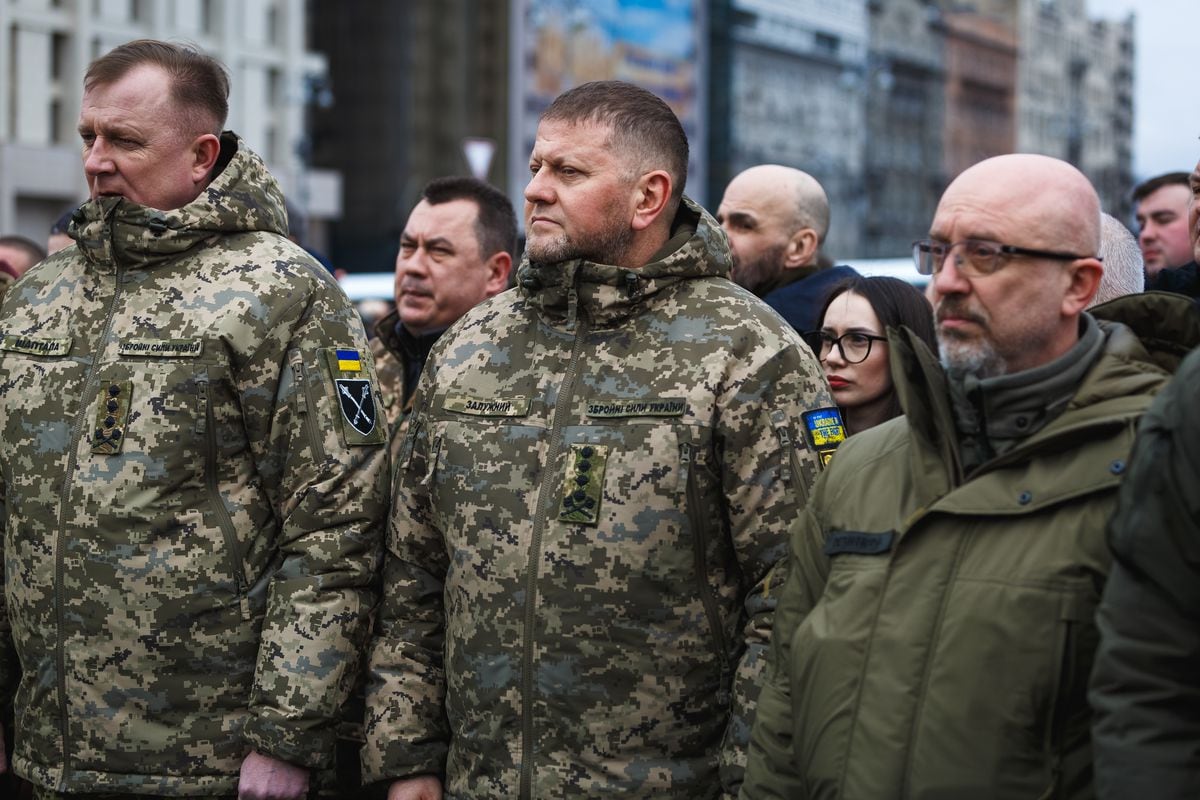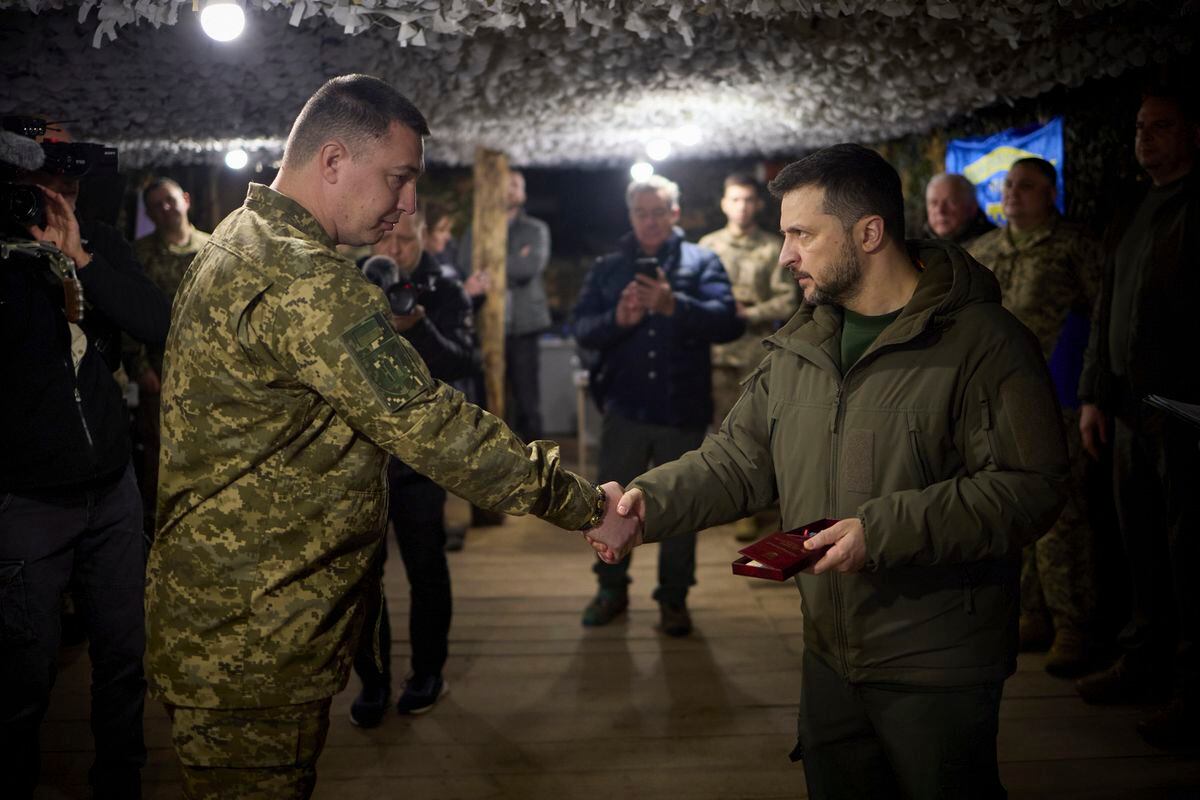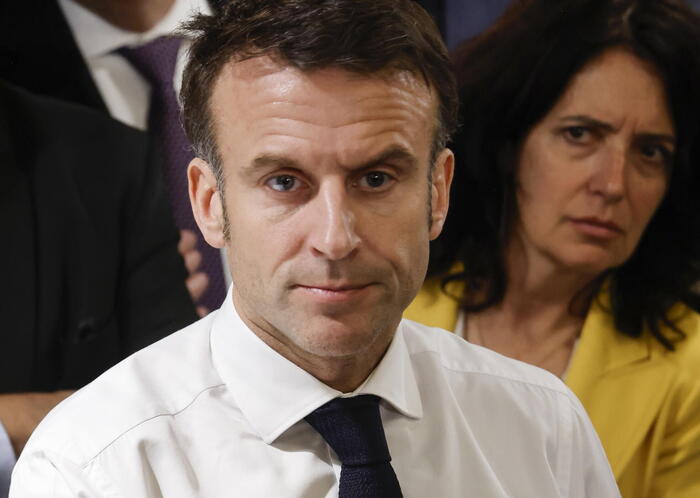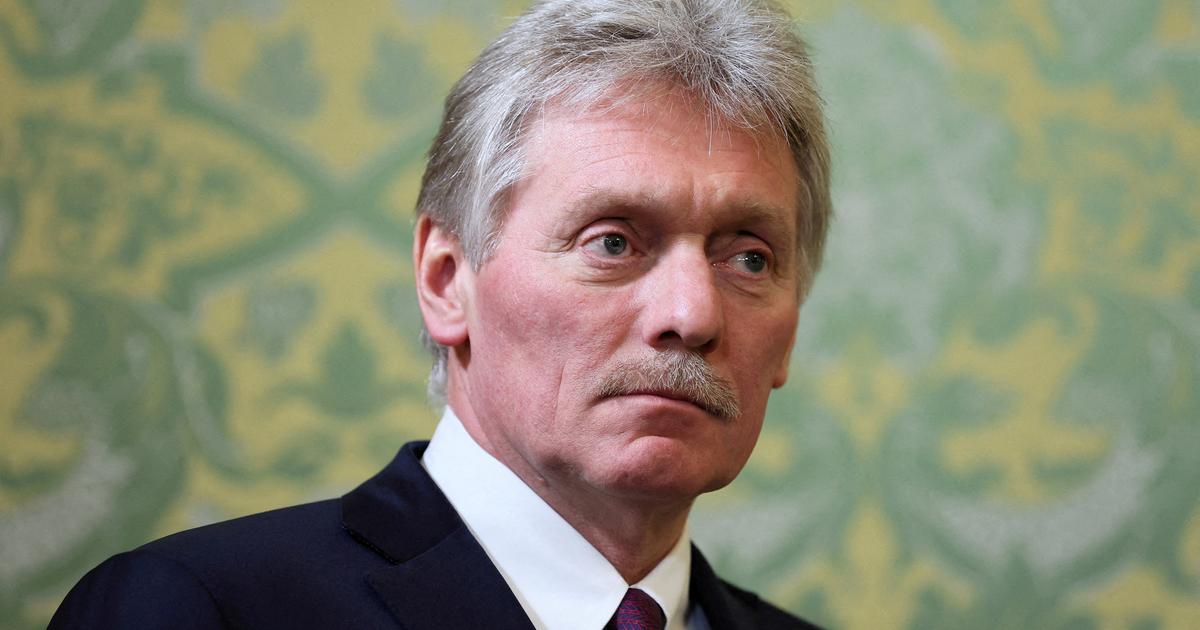Russia's number one enemy is not Volodymyr Zelensky. If there is anyone whom Moscow would like to liquidate in Ukraine today, it is Valery Zaluzhni. Russia's state-run Tass news agency reported last week that the commander-in-chief of Ukraine's armed forces had suffered a serious head wound following a shelling at a barracks on the Kherson front. Russian social media erupted in jubilation. Zaluzhni lets himself be seen publicly with droppers. Russian propaganda justified their absence as a sign that they had knocked Ukraine's greatest hero out of action. But Zaluzhni resurrected a few days later, also from the networks, to make it clear that he was still in one piece and ready to lead the imminent counteroffensive that should mark the future of the war.
In Ukraine there is only one person who can compare in popularity with the president, and that is Zaluzhni. Zelensky is the first politician who has earned overwhelming respect among the population of a country accustomed to political anger, to belittle its leaders as corrupt, puppets of the economic power of the oligarchs, but also of Russia. The president won handily in 2019 and his party then won an absolute parliamentary majority. Zelenski would win the presidential elections today with even more strength, according to the polls, because not only did he not flee when it seemed that Kiev could fall into Russian hands, but he has put himself at the head of a society united for the first time under a clear Ukrainian feeling.
More information
Last minute of the war in Ukraine
But it's one thing to be respected and another to be admired. And Zaluzhni is admired. "He is my idol, we thank God for having given us this man, it is in him that we trust our victory." So speaks Vladimir Fadeev, mayor of Vatutine, a town of 1,200 in the eastern province of Kharkiv. The plenary session of the City Council approved last February to change the name of the municipality to Zaluzhne. The news spread like wildfire, that of a town founded in 1948 that renounced its name, in honor of Soviet General Nikolai Vatutin, hero of World War II, for Zaluzhni.
"Every era has its heroes, and we must adapt to the current moment in history," Fadeev says. Not everyone is clear about it in Vatutine. "We should have voted for it, because this will be a mess, there will be so many villages in Ukraine renamed in honor of Zaluzhni," said Alexandra Tridub, 36, who was walking her baby through the streets of this bucolic town on Friday. "I like Zaluzhni, but there are already two Vatutine in Ukraine and many times the post office gets confused. For with Zaluzhni, each region will have a village named after it."
The toponymic change must be approved in advance by the Ukrainian Institute of National Remembrance and finally by Parliament, according to the mayor. The ploy that the Municipality of Vatutine has found to overcome a possible veto – in the face of a future excess of Zaluzhnis on the map – is that they will officially register the name as Zaluzhne, which in Ukrainian can mean "beyond the fields". And why not call him Zelensky? Fadeev says there are sure to be many villages named after the president in the post-war future. But not in Vatutine.
General and political
What other Ukrainian general could name Vatutine? Natalia Hakonenko admits that she has no answer to this question as she buys seeds for her garden in the only grocery store open in the village. "I don't know other generals because I prefer not to give an opinion about politics," Hakonenko excuses himself. His words coincide with the reflection made in May to this newspaper by the chief of staff of a member of the Ukrainian General Staff: "A general in Ukraine not only has a military weight, but also a political one, and not only has military enemies, he also has political enemies." In a highly militarized country, high-ranking officials often jump into politics.
Zaluzhni was appointed by Zelenskiy in 2021 to the position of commander in chief with the mission of modernizing the country's Armed Forces, moving them away from the hierarchical and rigid Soviet model. EL PAÍS has consulted a high-ranking military officer close to Zaluzhni and a deputy of the Rada [the legislative chamber] in close contact with several members of the General Staff, the body that brings together the main commanders of the Armed Forces. Both people, who prefer to speak anonymously, agree that the president and the commander in chief row in the same boat, but that does not mean that there are differences between them. And the differences, they indicate, are not so much with Zelenskiy as with the president's team. Specifically, with his right hand, Andrii Yermak. For example, according to these sources, heads of state and government have proposed meeting with Zaluzhni, but the office of the Ukrainian president, his only superior, would have ruled it out.
Zaluzhni has only given three interviews in the 15 months of war, two to international magazines – Time and The Economist – and one audiovisual with the Ukrainian journalist Dmitro Komarov. The latter, made public last May, shows a telegenic person, a good speaker and who knows how to touch the fiber of citizenship with a humble and at the same time powerful expression. If there is anyone who could overshadow Zelensky, it is Zaluzhni. Nothing indicates that the general wants it, although it is not a far-fetched idea: in a visit this Saturday of this newspaper to a military position that guards the limits between the province of Kharkiv and Russia, the soldiers stationed there, questioned by Zaluzhni, even contemplated the idea that a future presidential election, its commander in chief would run. "When I saw the interview with Komarov, I discovered someone humanly exceptional, beyond the military," recalls Ruslan, a border patrol soldier, "I don't know if he would be a good politician, but he has wood to connect with people."
On very few occasions Zaluzhni has wanted to give his opinion on political decisions, but when he has, he has marked the ground. Last December, in a statement, he gave support to a bill that toughened penalties against deserters. Zelenskiy had no choice but to sign it. The commander-in-chief has only once been the subject of political controversy. The Rada published last January a photo of Zaluzhni with a painting of Stepan Bandera, leader of the Ukrainian extreme right during the 30s and 40s, myth of the most radical nationalism. Protests by the Polish government, Ukraine's priority ally, forced parliament to withdraw the message and photograph.
Zelensky and Zaluzhni were starting from different positions when the invasion began. While the president ruled out a Russian attack until the last moment, the commander-in-chief took it for granted. "We had been at war for eight years, we knew this would happen, we have been preparing for this for eight years," Zaluzhni said in the interview with Komarov. In 2014, the war in Donbas and the unilateral annexation of Crimea by Russia began. In the first interview he gave with Time, Zaluzhni detailed how in the weeks leading up to the invasion he was preparing the defense of Kiev in complete secrecy.
Zelensky came to power promising a dialogue with Russia to end the war in Donbas. In March 2022, when the invasion had only been underway for a few weeks and Kiev was under siege, the president was still offering dialogue to Putin. The sources consulted by EL PAÍS affirm that Zaluzhni made a great effort in those first stages of the war to convince the presidential office that he could resist and turn the situation around.
In interviews with military officers at the front, declarations of unwavering confidence in Zaluzhni are common, something that does not happen with Zelensky. In the Numantine defense of the city of Bakhmut, in the east, a battle that lasts more than eight months, criticism against Zelenski by the Ukrainian military has been recurrent, because they have considered him the main responsible for a fight that has caused thousands of casualties without apparent results. But the reality is that Zaluzhni has made it clear that the resistance in Bakhmut is his decision.
"I would like Zelenskiy to keep Zaluzhni in office," Olga Muja, a resident of Ostriv, a village in Zaporizhia province, said in May. EL PAÍS interviewed Muja on a trip around the war front. Ostriv is located on the western bank of the Dnieper River, opposite the Russian-occupied Energodar nuclear power plant. Muja is 66 years old and retired. He says he knows nothing about military matters but has blind faith in the commander-in-chief. On Zelensky, his first reaction was silence as he tilted his head. Finally, he was right to say that, unlike others, he did not flee when the war began and has remained at the head of the country, especially gaining international support. "I think we are lucky to have both leading the country, each with his responsibility," said Hakonenko from Vatutine, the future Zaluzhne. "One governs the population and the other defends the country, and the results show that they make a good team," Fadeev adds.
Zelensky addresses the citizenry every day and Zaluzhni does it with droppers, but when he does, the injection of morale for public opinion is extraordinary. This happened when on May 27 he published on his social networks a patriotic video announcing that everything was ready to launch the expected counteroffensive, and so it was also in the interview with Komarov. "It will take time but we will liberate the Crimean peninsula, Donetsk and Luhansk, I have no doubt, I know what we need," the commander-in-chief reiterated. The journalist replied that for millions of Ukrainians, those words were their greatest message of hope.
Follow all the international information on Facebook and Twitter, or in our weekly newsletter.
Subscribe to continue reading
Read without limits
Read more
I'm already a subscriber




/cloudfront-eu-central-1.images.arcpublishing.com/prisa/RFAOAH7KGFCBHJ7ITQZGG5Q32Y.jpg)




